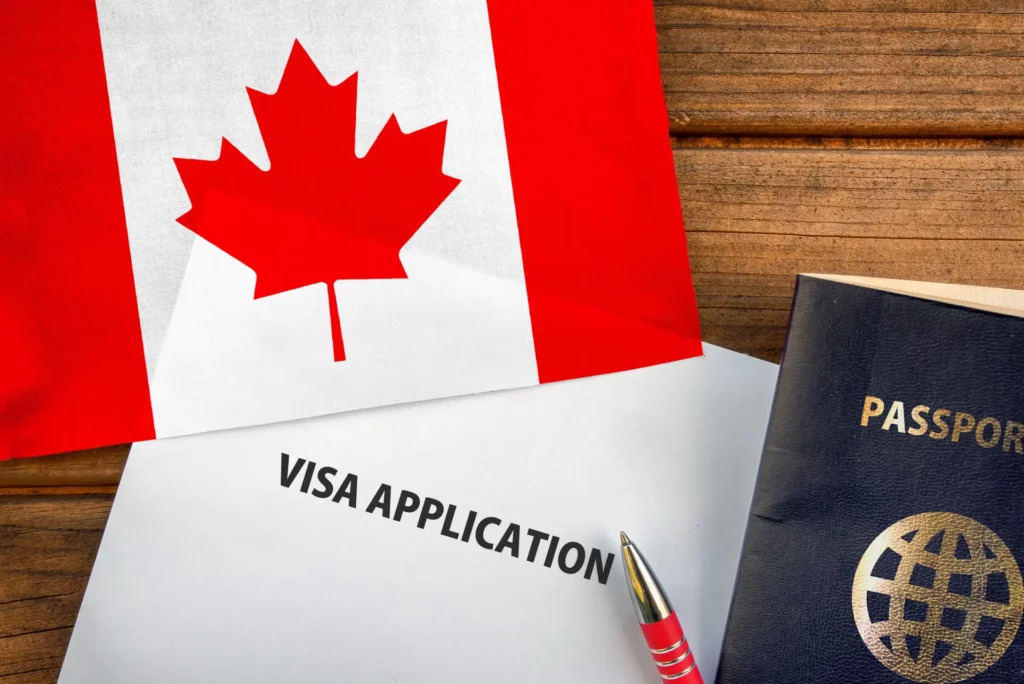Emigrate vs. Immigrate
The journey of human migration weaves a complex tapestry of stories, dreams, and histories, where language guides us through the narratives of those who move from one place to another. Among the terms navigating this vast landscape, emigrate vs. immigrate are signposts, marking these journeys’ departure and arrival points.
While closely related and often used in discussions of migration, these terms encapsulate different stages of the movement process. “Emigrate” focuses on leaving one’s homeland to live in another place, highlighting the perspective of the departure. In contrast, “immigrate” captures the process of entering and settling in a new country, emphasizing the perspective of arrival.
This subtle yet significant distinction is crucial for conveying precise meanings in discussions about migration policies, personal stories of relocation, and the broader historical movements of peoples. By delving into emigrate vs. immigrate, this guide seeks to clarify their usage, enabling readers to navigate migration discourse with accuracy and empathy and enriching our understanding of the journeys that shape our world.

Part 1: Understanding Emigrate vs. Immigrate
Embarking on the path to distinguish emigrate vs. immigrate requires a foundational understanding of their meanings, their roles in the migration language, and the contexts that call for one term over the other. This foundational knowledge ensures accurate application, enhancing the clarity and effectiveness of communication regarding the global phenomenon of human movement.
Definitions and Roles
- Emigrate: As a verb, “emigrate” describes leaving one’s own country or region intending to settle in another. It is a decision marked by departure, capturing the moment of leaving behind the familiar for the promise or necessity of a new beginning elsewhere. The focus is squarely on the point of origin and the act of exiting.
Example: “Many scientists emigrated from Europe during the 1930s, seeking freedom and opportunity in the United States.” - Immigrate: In contrast, “immigrate” is a verb that focuses on the arrival and settlement in a new country or region. This term highlights the endpoint of the migration journey—the integration into a new society and the beginning of a new chapter in the migrants’ lives. Here, the perspective shifts to the destination and the act of entering.
Example: “The family immigrated to Canada, drawn by the promise of safety and prosperity, and started a new life in Toronto.”
Grammatical Rules and Usage Guidelines
Correctly choosing between emigrate vs. immigrate hinges on the speaker’s or writer’s perspective—whether emphasizing the act of leaving a homeland (“emigrate”) or focusing on the process of entering and settling in a new country (“immigrate”):
- Contextual Clarity: Utilize “emigrate” to discuss the departure from a country, reflecting on the reasons and circumstances that drive individuals or groups to seek a new home. Opt for “immigrate” when describing the arrival, acceptance, and adaptation process to a new country or society.
- Identifying the Movement’s Direction: The direction of movement—out of a country or into a country—determines the appropriate choice. Remember, “emigrate” corresponds with leaving, while “immigrate” is associated with arriving.
By establishing a clear distinction between emigrate vs. immigrate, we lay the groundwork for their practical use, allowing for nuanced and precise communication about the multifaceted experiences of migration. This understanding not only aids in avoiding common confusion but also empowers us to articulate the journeys of those who move across borders with greater accuracy and empathy.

Part 2: Using “Emigrate”
“Emigrate” encapsulates the beginning of a migration journey, focusing on the departure from one’s homeland. It’s a term laden with the implications of leaving behind the familiar, often driven by the pursuit of new opportunities, safety, or change. Understanding how to use “emigrate” correctly can illuminate the reasons behind migration and the emotional landscape of those embarking on such significant life changes.
“Emigrate” for Departure
- Purpose and Application: Employ “emigrate” when discussing leaving one’s country to live elsewhere. This term explicitly addresses the perspective of individuals as they exit their country of origin, highlighting their departure as a pivotal moment in the migration narrative.
Example: “Due to the worsening economic conditions, many residents decided to emigrate from their homeland in search of better prospects abroad.”
Common Contexts for “Emigrate”
“Emigrate” is particularly relevant in contexts that examine the motivations and circumstances leading individuals or groups to leave their countries:
- Historical Migration Trends: When analyzing migration patterns throughout history, “emigrate” helps specify populations’ origins and initial movements.
Example: “During the 19th century, many people emigrated from Europe to the United States, driven by land availability and industrial opportunities.” - Personal Migration Stories: In personal narratives or biographies, “emigrate” captures the decisive moment of leaving and the factors influencing such a choice.
Example: “Her grandparents emigrated from Vietnam in the 1970s, part of a larger wave of refugees seeking new beginnings.”

Part 3: Using “Immigrate”
While “emigrate” marks the departure, “immigrate” celebrates the arrival, focusing on integrating into a new country. It’s about the conclusion of one journey and the commencement of another, where individuals or families establish roots in a new land, embracing its opportunities and challenges as their own.
“Immigrate” for Arrival
- Purpose and Application:” Immigrate” describes entering a new country to settle there. This term underscores the end of the migration journey and the start of a new phase of life in a new environment.
Example: “After years of preparation and waiting, they were finally able to immigrate to New Zealand, fulfilling a long-held dream of a fresh start.”
Differentiating “Emigrate” from “Immigrate”
Distinguishing between emigrate vs. immigrate hinges on understanding the directional focus of the migration—leaving a homeland versus arriving to settle in a new place:
- Departure vs. Arrival: While “emigrate” centers on the reasons and act of leaving, “immigrate” captures the arrival process, adaptation, and integration into a new country or society.
Example: “She emigrated from Ireland in the late 1980s. Years later, having fully immigrated to Canada, she reflects on the journey with a sense of accomplishment and belonging.”
Parts Two and Three explore the nuanced applications of emigrate vs. immigrate, highlighting their correct usage in contexts ranging from historical analyses and personal narratives to policy and societal integration discussions. By grasping the specific implications and perspectives each term offers, communicators can more accurately articulate the complex experiences of those who move across borders, enhancing our collective understanding and empathy toward the phenomenon of migration.

Part 4: Common Mistakes and How to Avoid Them
The journey between emigrate vs. immigration is lined with subtleties that can sometimes lead to confusion as both terms navigate the complex narratives of migration. Understanding common pitfalls and how to sidestep them is crucial for maintaining clarity and precision in our discussions about people moving from one country to another.
Confusing “Emigrate” and “Immigrate”
A standard error is interchanging emigrate vs. immigrate, which muddles the direction and focus of the migration being discussed. This mix-up can obscure whether the subject is leaving a country or entering a new one, leading to potential misunderstandings about the migration process.
- Strategy for Avoidance: Anchor your choice of term in the direction of movement. Remember, “emigrate” focuses on the exit from a country, while “immigrate” highlights the entrance into a new one. Keeping the perspective of movement in mind—outward from the origin or inward to the destination—can guide accurate usage.
Overgeneralization or Inaccurate Application
Applying “emigrate” or “immigrate” too broadly or without regard to the specific phase of migration can dilute the richness and accuracy of migration narratives, reducing their impact.
- Clarification Tip: Carefully consider the stage of migration being described. Is the focus on the decision and action of leaving the homeland? Use “emigrate.” Is the discussion about settling into and adapting to a new country? Then, “immigrate” is appropriate.
Tips for Correct Usage
Enhancing our discourse on migration requires a nuanced understanding of emigrate vs. immigrate, ensuring we convey the full spectrum of experiences associated with leaving one’s country and settling in another.
- Mindful Review: Regularly revisit your use of emigrate vs. immigrate in speech and writing, ensuring that each term is used in its proper context to describe migration accurately.
- Practice with Examples: Engage with texts, scenarios, or exercises that differentiate between emigrating and immigrating, reinforcing the correct application of each term.
- Seek Feedback: Share your narratives or discussions involving migration with peers or mentors to gain feedback on your usage of “emigrate” and “immigrate,” fostering a deeper understanding and mastery of these terms.
Conclusion
The distinction between emigrate vs. immigrate is more than a matter of semantics—it reflects the multifaceted journeys that define human migration. By accurately employing these terms, we honor the complexity of these experiences, from the poignant moments of departure captured by “emigrate” to the hopeful beginnings signified by “immigrate.”
This exploration sharpens our linguistic precision and deepens our empathy and understanding of the narratives woven through the fabric of our shared history. As we continue to discuss and document the movements that shape our world, let us do so with the clarity and accuracy that these stories deserve, using “emigrate” and “immigrate” to mark the passages of leaving and arriving with respect and insight.
Embracing Linguistic Precision
Our examination of emigrate vs. immigrate underscores the importance of precise language in capturing the depth of human experience. As stewards of personal or collective stories, we must choose our words carefully, ensuring that each term we use—especially in the context of migration—carries the weight of truth and understanding.
The Path Forward
Let us challenge ourselves to apply the insights gained from distinguishing between emigrate vs. immigrate in all our discussions about migration. By doing so, we contribute to a narrative that respects the dignity of those who embark on these journeys and enriches our collective dialogue with nuance and accuracy.

Further Exploration
For those eager to dive deeper into the intricacies of English, countless resources await. From comprehensive grammar guides to interactive language learning platforms, the tools at your disposal are more accessible than ever. Engage with these materials, challenge yourself with new exercises, and remain curious and open to discovery. We offer a line of comprehensive grammar and punctuation courses and feature a mastery quiz bundle to cement your further mastery of grammar and punctuation. Feel free to access the endorsed resources below to enhance your learning experience.





